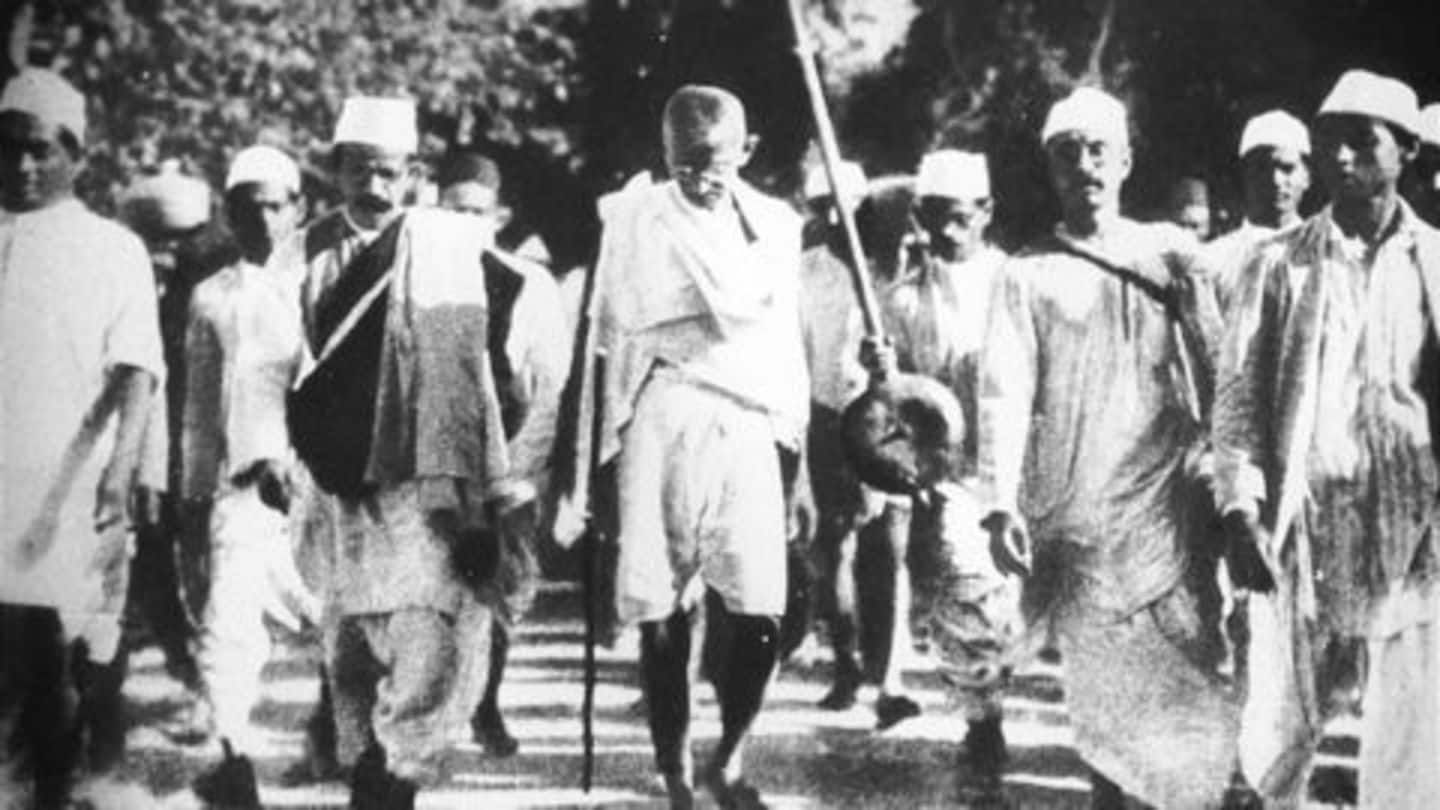
75th Quit India Movement Anniversary: Government plans countrywide celebrations
What's the story
India is celebrating the 75th anniversary of Quit India Movement that was launched on 8 August 1942 at Bombay.
The Movement was a significant milestone in India's freedom struggle.
It has been announced that Prime Minister Narendra Modi will launch a large-scale BJP campaign - '70 Saal Azadi-Yaad Karo Kurbani' on 9th Aug'16.
The government planned to "rekindle the spirit of patriotism" across India.
Background
British brought India into the World War-II
During the British rule, Lord Linlithgow, the British Governor-General of India, had brought India into World War-II in 1939.
The decision was taken without consulting Indians; the All India Muslim League supported it while the All India Congress was divided.
Subhash Chandra Bose reorganized the Indian National Army with Japan's assistance and the Axis Powers' help and waged a guerrilla war against the British.
Cripps Mission
Cripps Mission to negotiate with AICC
In March 1942, the British Government, under the House of Commons Leader Stafford Cripps, had sent a delegation called Cripps Mission to the reluctant war participant India.
The purpose was to carry out negotiations with the AICC and seal a deal to obtain India's total cooperation during the war in exchange for "progressive devolution" and distribution of power to an elected Indian legislature.
Information
Cripps Mission fails
The Cripps Mission failed as the British delegation's talks with the AICC were unsuccessful. The talks didn't address AICC's key demands, a timetable of self-government and relinquishing the definition of the powers that offered limited dominion-status. The AICC rejected the plan.
Civil Disobedience
Mahatma Gandhi calls for the Quit India Movement
The failure of Cripps Mission and a worsening war situation played a significant role in Mahatma Gandhi's call for the Quit India Movement.
In July 1942, the AICC called for total independence from the British and proposed mass civil disobedience if their demands weren't met.
Some Indian groups opposed the civil disobedience; several prominent fighters supported the Movement of which non-violence was the basis.
Do or Die
Quit India Movement launched
On 7 August 1942, the AICC held a meeting in Bombay regarding the civil disobedience movement; Mahatma Gandhi, in his speech, made a call to 'Do or Die'.
On 8 August, Jawaharlal Nehru moved the "Quit India" resolution and was seconded by Sardar Patel.
The resolution was successfully passed; the Gandhi-led Quit India Movement demanding an end to the British rule was launched.
Arrests
AICC leaders arrested; British lost control
On 9 August 1942, AICC leaders like Mahatma Gandhi, Vallabhai Patel, Abdul Kalam Azad, and Jawaharlal Nehru were arrested.
The British had lost control over some parts of India for several weeks during the Movement.
They had to use machine guns and carry out aerial bombings to restore their power.
Also called August Kranti, the Movement played a significant role in India's freedom struggle.
Quote
PM Modi's 22nd Mann Ki Baat edition
PM Narendra Modi urged people to celebrate the 'Quit India Movement' anniversary and Independence Day. He said, "Let us create an atmosphere to celebrate this as a festival of freedom. Not a government function but it should be a people's festival like Diwali."
NDA Government
NDA Government plans countrywide celebrations
Union Minister Venkaiah Naidu had announced the NDA Government would hold programs across India to make people aware of the freedom fighters' sacrifices during the Quit India Movement in 1942.
He stated 75 ministers would visit important placed across India, convey the message of patriotism, and recall the freedom struggle.
Ministers would visit places like Dandi, Jallianwala Bagh, Kittur Rani Chennamma, Kakoro, etc.